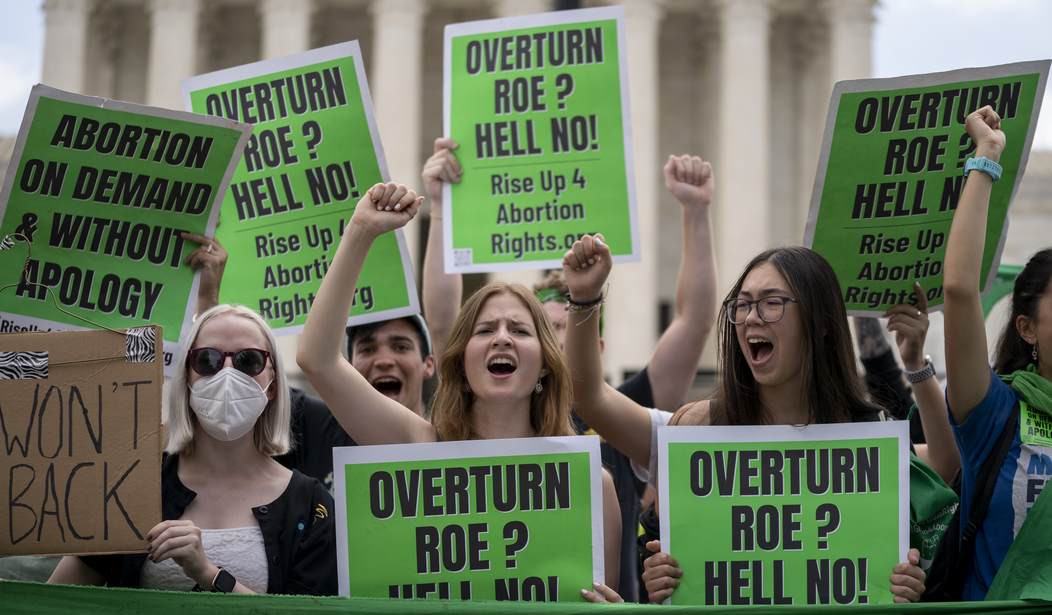On Saturday, Michigan’s largest health care system announced that it will continue to provide abortions in circumstances where it is medically necessary. It clarified that it will not provide elective abortions.
The message from BHSH System came one day after the United States Supreme Court overturned Roe v. Wade (1973) and Planned Parenthood v. Casey (1992). Michigan is one of several states with a pre-Roe law on the books banning abortions, as Townhall covered. However, the 1931 law is unenforceable due to a temporary injunction.
The Detroit Free Press noted that the health care system “initially said it would follow the guidance of Michigan’s 1931 abortion law – which is currently unenforceable under a temporary injunction – and only allows pregnancy termination when necessary to preserve the life of a pregnant person.”
Shortly after, the organization released another statement.
“After extensive evaluation and in-depth discussion, and always using compassion as our guide, we have evolved our approach,” the statement said.
"At present, the current legal landscape regarding abortion in our state is unclear and uncertain. We are aware of the 1931 Michigan law. However, given the uncertainties and confusion surrounding its enforcement, until there is clarity, we will continue our practice of providing abortions when medically necessary," the updated statement added. It clarified that the health system “will not perform elective abortions.”
BHSH System President and CEO Tina Freese Decker said in a statement that “we will continue to provide high quality reproductive care to all women in Michigan. Both Beaumont Health and Spectrum Health have historically performed abortions when the mother’s life was at risk and BHSH System will continue to do so.”
Recommended
Pro-abortion Democratic Gov. Gretchen Whitmer has urged the Michigan Supreme Court to rule on the issue. On Friday, the day of the Supreme Court’s ruling, Whitmer said in a statement on her website that the state’s 1931 law would “punish women and strip away their right to make decisions about their own bodies.”
“We need to clarify that under Michigan law, access to abortion is not only legal, but constitutionally protected. The urgency of the moment is clear—the Michigan court must act now,” Whitmer’s statement said. “With today's U.S. Supreme Court decision, Michigan's extreme 1931 law banning abortion without exceptions for rape or incest and criminalizing doctors and nurses who provide reproductive care is poised to take effect. If the 1931 law goes into effect, it will punish women and strip away their right to make decisions about their own bodies. That is why I filed a lawsuit in April and used my executive authority to urge the Michigan Supreme Court to immediately resolve whether Michigan’s state constitution protects the right to abortion. I will fight like hell to protect the rights of Michigan women.”
Townhall covered how Democratic pro-abortion Michigan Attorney General Dana Nessel told reporters in recent months that she will not enforce the 1931 law if it goes back into effect.
“This incredibly draconian and strict, 1931 law would criminalize abortion in this state with virtually no exceptions. No exception for rape, for incest, no exception for medical emergencies,” she said in an interview on NBC’s “Meet the Press.” “I refuse to enforce this draconian law.”
The Supreme Court’s landmark decision returns the issue of abortion back to the states. Several states with “trigger” laws on the books immediately restricted abortion following the ruling.
The case, Dobbs v. Jackson Women’s Health Organization, surrounded a 15-week abortion ban in Mississippi. The justices ruled 6-3 to uphold Mississippi’s law and 5-4 to overturn Roe.
"Like the infamous decision in Plessy v. Ferguson, Roe was also egregiously wrong and on a collision course with the Constitution from the day it was decided," the Supreme Court's opinion explained. "Casey perpetuated its errors, calling both sides of the national controversy to resolve their debate, but in doing so, Casey necessarily declared a winning side. Those on the losing side—those who sought to advance the State’s interest in fetal life—could no longer seek to persuade their elected representatives to adopt policies consistent with their views. The Court short-circuited the democratic process by closing it to the large number of Americans who disagreed with Roe."























Join the conversation as a VIP Member